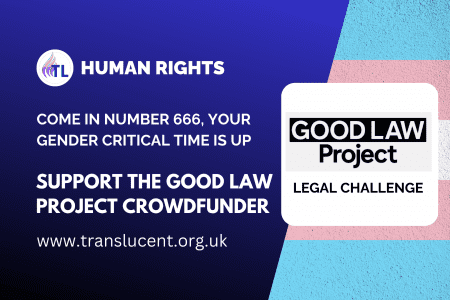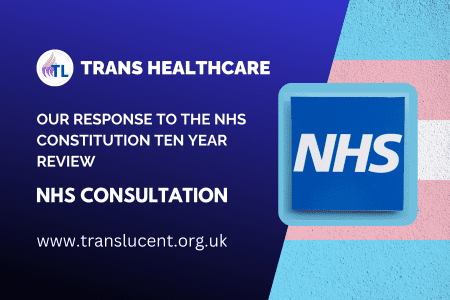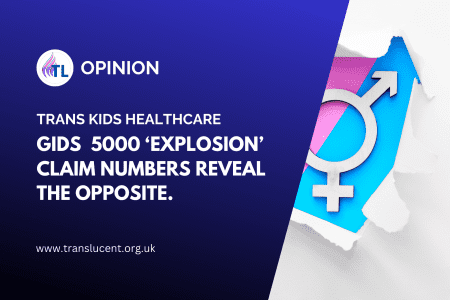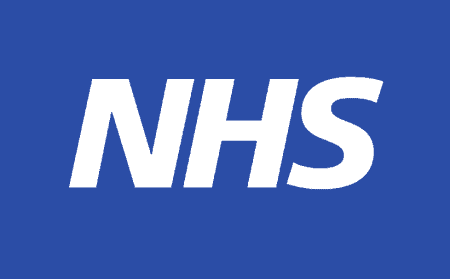This all started with a chance conversation with Julie, a fellow editor here at Steph’s Place. We were talking about the state of the UKs Gender Identity Clinics (a topic of much discussion in the trans community), Julie mentioned CQC inspections and I got..curious.
When I get curious, I tend to ask awkward questions. The main subject of this article looks at the adult services (GICs), and not the young person’s services (GIDS) – although I do take a look at that briefly as well at the end.
Who are the CQC?
The CQC (Care Quality Commission) is the ‘independent’ regulator of health and social care in England. Just how ‘independent’ is questionable, as we will reveal some rather interesting information.
What do the CQC do?
They make sure health and social care services provide people with safe, effective, compassionate, high-quality care and encourage care services to improve – at least according to the marketing blurb on their website.
They do this by monitoring and inspecting health services, and taking action against those who don’t come up to standard.
So they cover all health services, right?
You would have thought so, but… no.
The CQC’s Scope of Registration covers the services that are expected to be registered (Section 1), and those that are exempt (Section 2)
And here is where it starts to get interesting. GICs are not listed as an exempt service so you would have thought they would need to be registered,especially as they appear to fall under the ‘Diagnostic and Screening’ category in Section 1.
But looking at the CQC website, which lists all these services alongside a search engine with all the inspection reports – GICs are not registered.
Well, one is – ‘Charing Cross’ – never inspected.I also had a look for inspection reports – and only found one.
Down the rabbit hole we go.
That got me wondering, so in early June 2021 I thought I’d play nice and ask the CQC directly, with the following questions in regard to England’s Gender Identity Clinics.
Could you clarify whether these services are exempt
If exempt, why was GIDS inspected?
If not, why these services do not appear to be registered
Why they have not been inspected to date despite almost 10 years of operation?
Pretty easy, right?
Right?
The first response I had failed to answer any questions, pointed me to the Scope of Registration above which Id already read (and had told them as much), and tried to fob me off.
After complaining about this, it then got bounced to the Regional Registration Team. And despite no less than 5 attempts to get an answer over the following month – no answer – just automated acknowledgements and a perfunctory ‘sorry’.
Freedom of Information requestFOIR How to make a freedom of information (FOI) request You have the right to ask to see recorded information held by public authorities. https://www.gov.uk/make-a-freedom-of-information-request it is then.
I submitted this in July 2020 – and again, despite a number of follow ups through July, August and September – nothing.
By now my ‘what the hell are they hiding’ radar is pinging like a motion detector in Aliens just before the Colonial Marines get jumped – and it finally took filing a complaint with ICO and telling the CQC I’d done it to generate an astonishingly quick answer.
Sort of.
5 months to get a response to four simple questions, and the response goes some way to explain why trans healthcare in the UK has been left to get as bad as it has.
The Answers (or not)
The answers I got seem pretty contradictory and take a little unravelling – leading to more questions.
Are the GICs exempt?
In short no.
So they should be registered and inspected?
In short, also no.
What?
The first part of the response provided was this :
‘Gender Identity Services is not a service type, or a regulated activity in itself. It is a service which falls under one of the regulated activities, in the same way that taking an x-ray would be considered part of Diagnostic and screening procedures.’
Translating that – they don’t recognise Gender Identity Services as a service, but they do have a gender identity services category for their reporting – so they’re not exempt – but don’t need registering either, are sometimes inspected, but mostly not, and not a service type, but listed as one.
What about inspections then?
The second part of the response I got states :
‘With the above in mind, we will inspect providers of Gender Identity Services using the methodology specific to the service in which they are being provided, i.e. if they are provided at an NHS hospital, we would inspect it using NHS Trusts methodology.’
This explains why GICs don’t appear to have ever been inspected as a service – with a couple of exemptions that we will look at in a moment, and according to that statement they should be inspected as part of the Trust or Location that operates them.
And that hasn’t happened either.
GICs are Schroedinger’s Diagnostic Services – providing diagnostics, but not diagnostics they want to recognise, so they don’t provide diagnostics either. Except when it’s convenient to use against the trans community – as we will see later on.
I examined the inspection reports for each Trust (not an easy task as the search engine on the CQC site is awful – narrowing down some of the terms I actually got a better result from Google) and found the following :
–The Tavistock and Portman NHS Foundation Trust: Gender Dysphoria Clinic for Adults
One inspection in 2018 (see P24 in the link) – which was an announced inspection (so they GIC knew the CQC were coming) and they got a ‘Good’ rating. Stop laughing at the back.
Prior to this the London GIC was run by the West London Mental Health NHS Trust and was inspected in January 2016 – but this doesn’t appear to be listed under the entry for the Trust itself. Via Google I found it – unrated but requiring improvement and in breach of Regulation 17 for Good Governance.
No evidence of anything prior to this.
Sheffield Health and Social Care NHS Foundation Trust Gender Dysphoria Service
One mention in inspection reports from 2014 to date, but no inspection of GIC service ever conducted as part of the Trust.
Leeds and York Partnership NHS Foundation Trust Gender Dysphoria Service
Several mentions in inspection reports from 2014 to date, but no inspection of GIC service ever conducted either as part of the Trust or on it’s own.
Cumbria, Northumberland, Tyne and Wear NHS Foundation Trust Northern Region Gender Dysphoria Service
Several mentions in inspection reports from 2016 to date, but no inspection of GIC service ever conducted either as part of the Trust or on it’s own.
Northamptonshire Healthcare NHS Foundation Trust Gender Dysphoria Clinic
No mention in any inspection report from 2015 to date, no inspection of GIC service ever conducted either as part of the Trust or on it’s own.
Nottinghamshire Healthcare NHS Foundation Trust The Nottingham Centre for Transgender Health
No mention in any inspection report from 2014 to date, no inspection of GIC service ever conducted either as part of the Trust or on it’s own.
Devon Partnership NHS Trust West of England Specialist Gender Dysphoria Clinic
Several mentions in inspection reports from 2014 to date, but no inspection of GIC service ever conducted either as part of the Trust or on it’s own.
What about GIDS & UCHL?
Following the GMC tribunal against Dr Webberley got me curious about this side of the operation as well.
We all know that GIDS (the young person’s gender care service) was inspected in 2020 and found to be inadequate – another ‘announced’ inspection, and it’s rather curious that this inspection happened just prior to the court case (Bell vs Tavistock) in December 2020 – providing some convenient negative context for that attack on trans healthcare for young people.
It’s not the only curiosity related to GIDS with the CQC either.
I had a look at University College London Hospitals NHS Foundation Trust as well, particularly interested in the endocrinologyendocrinology https://en.wikipedia.org/wiki/Endocrinology Endocrinology (from endocrine + -ology) is a branch of biology and medicine dealing with the endocrine system, its diseases, and its specific secretions known as hormones. It is also concerned with the integration of developmental events proliferation, growth, and differentiation, and the psychological or behavioral activities of metabolism, growth and development, tissue function, sleep, digestion, respiration, excretion, mood, stress, lactation, movement, reproduction, and sensory perception caused by hormones. Specializations include behavioral endocrinology[1][2][3] and comparative endocrinology. services provided to GIDS – the service that caused serious patient harm by arbitrarily removing treatment, as evidenced in the tribunal.
It took some digging as services aren’t mentioned, but eventually I found them under the reporting for the University College Hospital & Elizabeth Garrett Anderson Wing, which had an inspection in January 2021.
There are two convenient curiosities here – the first is the date, which is a few months prior to the tribunal mentioned above, and the second is the subject.
This inspection was announced, didn’t provide a rating and didn’t look at patient care at all – it looked exclusively at consent, focussing on the MDT approach. Which was a core part of the GMC’s argument against Dr Helen Webberley.
It’s a bit of a strange coincidence – almost as if both inspections around GIDS and UCHL were planned to coincide with events that impact trans healthcare for young people.
Are the CQC putting trans patients at risk?
In light of this info, and given all the horror stories from trans patients using England’s GICs over the years to date, with tales of excessive gatekeeping, reinforcement of gender stereotypes, withholding treatment and even sexual abuse during physical examinations, as well as excessively long wait lists, abusive diagnositic practices and completely inadequate administration – its a valid question to ask.
From a patient safety perspective, GICs should be required to be inspected – it’s just basic common sense. That they haven’t been should be ringing alarm bells within the medical professions and those charged with ensuring safe operation of services – but it isn’t, it’s being ignored.
Couple this with the NHS failing to monitor waiting lists centrally, evidence from the GMC tribunal and the Women & Equalities Committee on GRA ReformGRA Reform Gender Recognition Reform Bill - Scotland https://www.gov.scot/news/gender-recognition-reform-bill/ Published 03 March 2022 09:34 Part of Equality and rights Simplifying how trans people apply for a Gender Recognition Certificate. See Also https://mermaidsuk.org.uk/mermaids-manifesto-for-gra-reform/ https://www.stonewall.org.uk/what-does-uk-government-announcement-gender-recognition-act-mean that abusive practices as commonplace, and it increasingly appears like a concerted effort by either the NHS and CQC, or individuals within both, to ensure that Gender Identity Clinics can ‘fly under the radar’, potentially operating substandard services that leave transgender patients as third class patients in the NHS – and inspecting only when it seems to serve an agenda to make those services more difficult to access.
It’s high time that was acknowledged, the true state of the UKs GICs operation revealed, and all relevant steps taken to dramatically improve or reform both the services and service accessibility.
But like any abuser in denial, the NHS and UK medical community needs to admit the scope and scale of the problem first.











 To provide the best experiences, we use technologies like cookies to store and/or access device information. Consenting to these technologies will allow us to process data such as browsing behaviour or unique IDs on this site. Not consenting or withdrawing consent, may adversely affect certain features and functions.
To provide the best experiences, we use technologies like cookies to store and/or access device information. Consenting to these technologies will allow us to process data such as browsing behaviour or unique IDs on this site. Not consenting or withdrawing consent, may adversely affect certain features and functions.